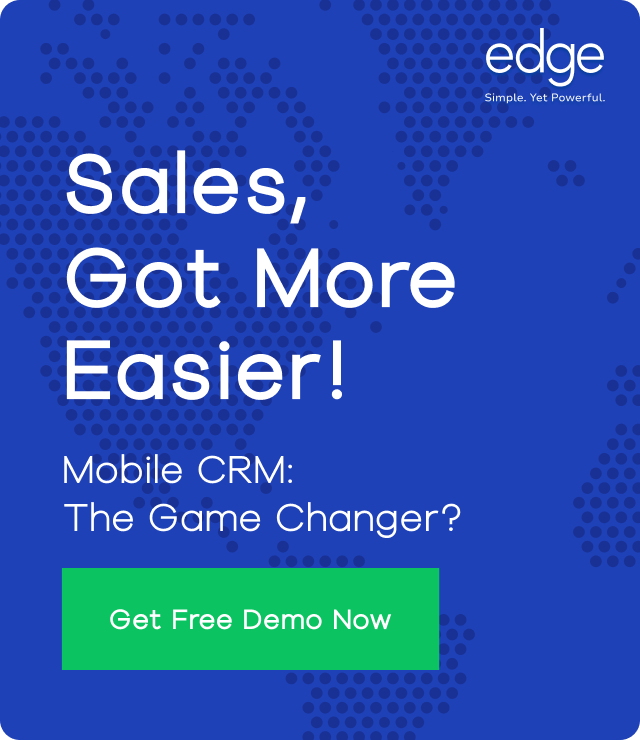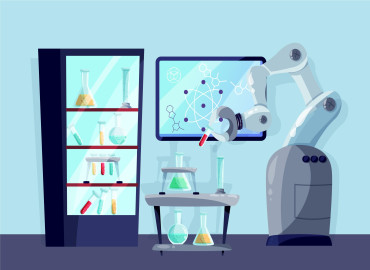by Michael Bani
8 minutes
Artificial Intelligence In Pharma Marketing: Enhancing Customer Engagement And Market Insights
Discover how AI is revolutionizing pharma marketing with personalized campaigns, predictive analytics, and enhanced customer engagement.

AI is quickly becoming a key tool in pharmaceutical marketing, offering a competitive edge. AI can predict customer behaviours and preferences, helping engage healthcare professionals and patients more meaningfully.
In addition, AI-driven programmatic advertising is changing how ad space is bought, making it more data-driven and cost-effective. As AI continues to progress, its role in transforming pharmaceutical marketing grows!
Companies that adopt AI in their marketing strategies will have a significant advantage over those that are slower to adapt. With the right approach, AI can help create more personalised, impactful campaigns that meet business goals.
Read our complete blog to explore how AI enhances customer engagement, reshaping and driving innovation in pharma marketing!
What are the Advantages Of AI In Pharma Marketing?
Besides increasing the overall efficiency, here are a few advantages of implementing AI in pharma marketing:
a) Reduction of Costs: Automation efficiencies of AI allow marketing resources to be reallocated to various sections that tend to provide great value so that the outcomes could be significant.
b) Speed: AI can streamline routine tasks and even simplify intricate workflows. For example, lengthy content commissioning can be transformed into a matter of seconds with AI-driven prompts. Similarly, AI can expedite complex localisation efforts, ensuring that healthcare professionals (HCPs) receive relevant content more quickly.
c) Flexible Approaches: The capability of AI to manage structured and unstructured data empowers pharma marketers to obtain better insights about the needs of HCPs and respond effectively. By simplifying data processing, marketers can put in their efforts to extract deep insights and refine engagement strategies. AI unlocks fresh possibilities for agile and impactful marketing when paired with tools that generate high volumes of compliant content.
d) Sales Empowerment Strategies: AI provides various opportunities for customer-facing teams. Beyond providing training to enhance skills and product knowledge, it helps representatives to get equipped with customer needs and recommends the next steps for better engagement. This integration helps seamlessly blend in-person interactions into cohesive omnichannel customer journeys.
e) Omnichannel Marketing: When utilised appropriately, AI can help generate large-scale marketing content essential for personalised engagement strategies. This empowers healthcare marketers to move beyond focusing on just a handful of target profiles, allowing them to create tailored and impactful content journeys for every HCP (Healthcare Professionals).
Challenges Of Implementing Artificial Intelligence (AI) Into Pharma Marketing
Using artificial intelligence strategically can make processes extraordinarily efficient and provide valuable insights. However, adopting these advanced challenges invites a lot of obstacles! Pharma marketers must address scepticism, manage data privacy issues, and comply with regulations to make the most of AI in their marketing efforts.
a) Prioritizing Data Security & Privacy: One primary concern is maintaining data privacy in the pharma industry. As AI entirely depends on data to produce insights and facilitate personalisation engagement, protecting the information of patients and HCPs (Healthcare Professionals) is of the most significant importance.
Marketers in the pharma industry should focus on establishing strong data governance frameworks to make sure that every AI application complies with data protection laws, like HIPAA and GDPR. Access controls, regular security audits and encryption are essential measures to avoid data breaches.
b) Managing Regulatory Complexities: It's a known fact that the pharmaceutical industry is regulated strictly, which signifies that any marketing technology utilised must adhere to all these rules & regulations. Navigating through these stringent regulatory frameworks has become a considerable challenge when implementing marketing strategies that AI drives.

Pharma marketers should ensure that their use of artificial intelligence in creating content, customer engagement and targeting comply with the standards. Working closely with compliance and legal teams is essential to understanding the limits set by regulatory authorities. Pharma marketers must also keep up with new regulations concerning data usage and AI.
c) Conquering Skepticism & Resistance: In the pharmaceutical industry, one of the common challenges is resistance to change, specifically when it comes to new technologies such as Artificial Intelligence. There are a lot of individuals who are sceptical because they are not able to understand how AI can enhance marketing strategies. In order to overcome this, it's essential to highlight the genuine advantages offered by AI, such as increased efficiency and better targeting.
Moreover, providing educational resources and sharing success stories can help make AI understandable and display its true potential. Building a continuous learning and innovation culture can also help reduce resistance. Involving key stakeholders in implementing AI can make this transition effortless.
Adopting artificial intelligence in pharmaceutical marketing comes with many challenges, but having a strategic approach in the right place can help address AI's full potential. As the pharmaceutical industry evolves, staying aware and prepared for these challenges is the key to successfully implementing AI.
To learn more about pharmaceutical marketing and other subjects, visit our website now!
Best Practices For Leveraging Artificial Intelligence In Pharma Marketing
1) Content Creation — Utilizing artificial intelligence to assemble pre-approved content helps avoid the problem of AI generating inexact information. This method performs fittingly with modular content, as it's already approved and can be combined effortlessly. Eventually, this specific approach enables you to increase content volume while still fulfilling MLR requirements.
2) All-Inclusive Solutions — Healthcare regulation, particularly in content creation, means you must look at the supply chain as a connected system. Every section of the business has its own needs and demands that must be considered. For example, boosting content volume without improving MLR’s approval process won’t work. Instead, it's better to always aim for solutions that genuinely address the requirements of everyone involved from start to finish.
3) Change Management — Incorporating artificial intelligence in pharma marketing is simple and easy when everyone is aligned correctly and going towards the same direction. Change management processes might seem like an extra expense, but they can help you save a fortune long-term and ensure that projects are completed on time.
4) Strong Collaboration — Balancing the requirement for developing internal artificial intelligence with bringing in external knowledge. Depending on everything in-house can result in companies struggling to keep up with technological advancements. Outsourcing every single work can hinder learning and build resilience. The best approach is to develop long-term partnerships with consultancies and agencies to support ongoing improvement and improve your organisation's capabilities.
5) Scalable Initiatives — Avoid letting your marketing teams freely experiment with AI tools independently. Otherwise, this might lead to isolated solutions that won't work across the company. Therefore, it's best to strike a balance to enable some local experimentation and skill-building while also implementing solutions that meet the organisation's requirements.
6) Practical Use Cases — With various ways to utilise Artificial Intelligence, companies & marketers can feel overwhelmed or hesitate to take action, fearing they will make the wrong decision. To avoid this, implementing AI in pharma marketing should pay attention to specific use cases. By managing their most significant challenges and knowing where AI can be utilised safely, companies can concentrate on their AI investments where the technology will make the most of the difference.
A Few Examples Of AI Being Applied In Pharma Marketing
Personalized Marketing Campaigns
Pfizer uses AI to analyze patient data and target specific populations for its vaccine campaigns. AI models help identify which demographics are likely to need additional education or encouragement about vaccination, optimizing campaign outreach.
Impact: Improved patient engagement and higher vaccination rates.
Predictive Analytics for Launch Planning
Novartis uses AI to predict market trends and gauge the potential success of new drug launches. Predictive models analyze historical sales, market dynamics, and competitor activities to optimize launch strategies.
Impact: Efficient allocation of resources and higher chances of successful product launches.
Voice Search Optimization

Sanofi integrates AI to optimize its website and marketing materials for voice search, acknowledging the growing use of digital assistants like Alexa and Google Assistant for health-related queries.
Impact: Better visibility and accessibility for potential customers.
Social Media Sentiment Analysis
Johnson & Johnson uses AI-driven sentiment analysis to monitor public opinion about its products on social media. Insights from these analyses inform marketing strategies and crisis management.
Impact: Enhanced reputation management and more responsive marketing.
AI for Content Optimization
Bayer employs AI-powered tools to create and distribute marketing content. The AI analyzes the performance of previous campaigns and suggests improvements for future content, such as video ads and social media posts.
Impact: Increased engagement rates and cost savings in content creation.
Wrapping It Up!
Artificial Intelligence is increasingly essential in pharmaceutical marketing, and its utilisation is growing quickly! Proper knowledge of incorporating AI into your marketing strategies helps predict customer behaviour, improve customer experience and boost efficiency. By utilising various tools such as machine learning or natural language processing, pharma marketers can understand their target audience better and communicate more effectively.
Check out our pharma marketing articles for more detailed insights into our pharmaceutical marketing strategies!
.webp)



